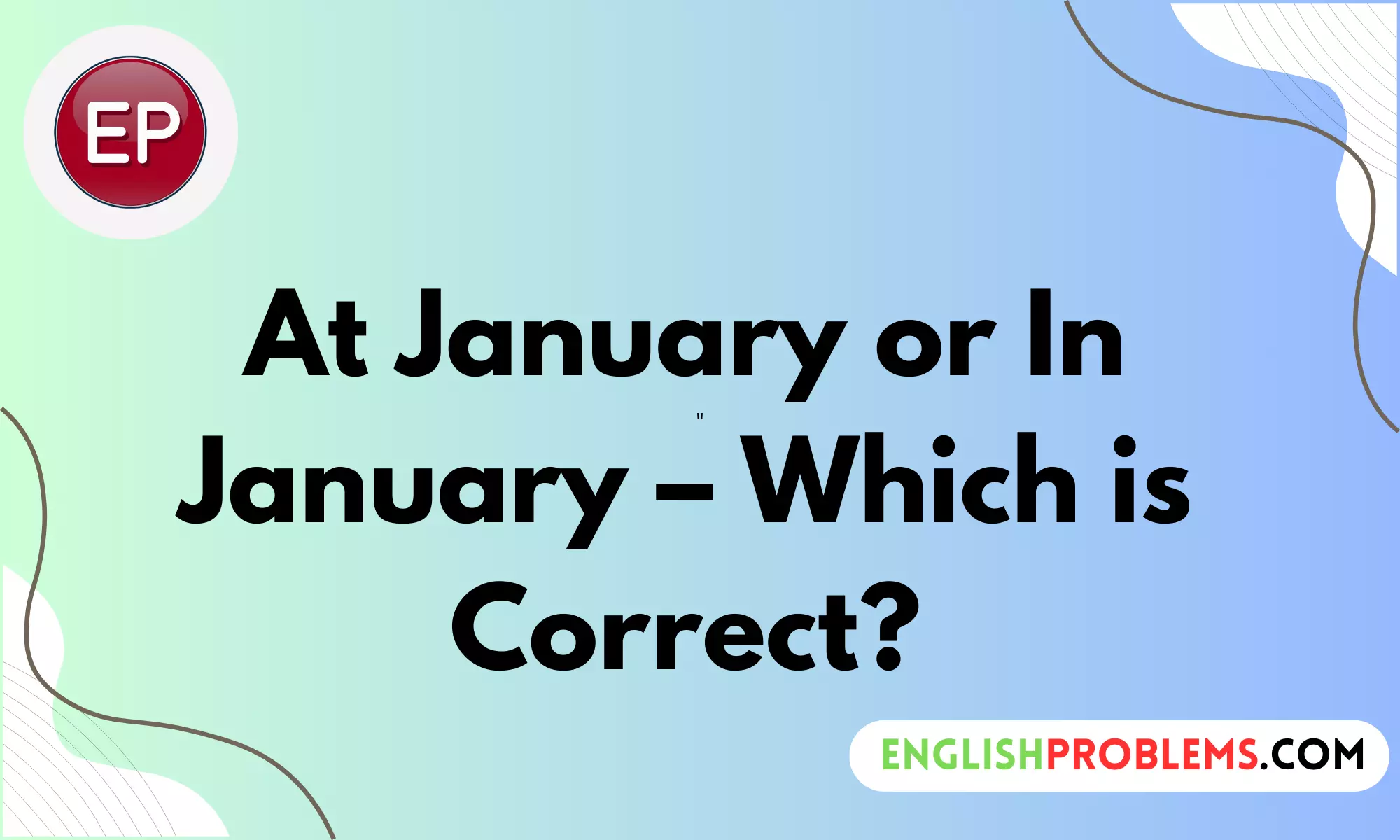The confusion over using “at January” versus “in January” is common, but understanding the correct usage is crucial for clear and precise communication.
In this article, we’ll dissect the proper way to use these time-related expressions and offer insights into common mistakes and practical tips for avoiding them.
Understanding Prepositions
What Are Prepositions?
Prepositions are words that link nouns, pronouns, or phrases to other words within a sentence. They provide essential information about time, place, direction, and manner. For example:
- Location: The book is on the table.
- Direction: She walked to the store.
- Time: The meeting is at 3 PM.
In time expressions, prepositions help clarify when events occur. Understanding their correct usage can significantly enhance your communication skills.
Common Prepositions Used with Time
Here are some common prepositions and their typical uses:
- In: Used for longer periods such as months, years, centuries, and long periods of time.
- Example: In January, In 2024, In the 21st century.
- On: Used for specific days and dates.
- Example: On Monday, On July 4th.
- At: Used for precise times and specific moments.
- Example: At 5 PM, At noon.
The Correct Usage of “In January”
Definition of “In”
The preposition “in” is used to indicate periods of time, including months, years, seasons, and other extended durations. When you say “in January,” you refer to the entire month as a general timeframe.
Grammar Rules for Using “In”
When using “in” with months:
- General Timeframe: “In January” refers to the whole month of January.
- Example: “We will start the project in January.”
- Months and Years: Similarly, “in 2024” refers to the entire year of 2024.
- Example: “The event is scheduled for in 2024.”
Examples
Here are some examples showcasing the correct use of “in January”:
- Example 1: “In January, the weather starts to get colder.”
- Example 2: “She plans to visit her family in January.”
- Example 3: “The company will launch its new product in January.”
Common Mistakes to Avoid
Using “in” correctly is straightforward, but people sometimes make errors:
- Incorrect: “We will have the meeting at January.”
- Correct: “We will have the meeting in January.”
Understanding these rules can help you avoid common pitfalls and communicate more effectively.
Why “At January” Is Incorrect
Explanation of Incorrect Usage
The phrase “at January” is not correct because “at” is used for specific points in time rather than for months or longer periods. The preposition “at” is suitable for precise times and dates, not for broader timeframes.
Common Mistakes with “At January”
Many people mistakenly use “at January” when they mean to use “in January.” This error can lead to confusion and miscommunication.
Examples
- Incorrect: “The project starts at January 1st.”
- Correct: “The project starts on January 1st.”
Why Using “At January” Doesn’t Work
The use of “at” implies a specific point in time rather than a broader timeframe. For instance:
- Incorrect: “She will be on vacation at January.”
- Correct: “She will be on vacation in January.”
Using “at” with months is grammatically incorrect because it doesn’t align with standard English usage.
Common Contexts for Time Expressions
Using “In” for Extended Periods
“In” is used for longer periods:
- Months: “In March,” “In September”
- Years: “In 2024,” “In 1995”
- Seasons: “In summer,” “In winter”
Using “On” for Specific Days and Dates
“On” is used for specific days and dates:
- Days: “On Monday,” “On Friday”
- Dates: “On July 4th,” “On December 25th”
Using “At” for Precise Times
“At” is used for exact times:
- Times: “At 5 PM,” “At noon”
- Moments: “At sunrise,” “At midnight”
Table: Prepositions for Time
PrepositionUsed ForExamplesInMonths, years, seasonsIn January, In 2024OnSpecific days, datesOn Monday, On July 4thAtPrecise times, momentsAt 3 PM, At midnight
Exceptions and Special Cases
Fixed Expressions
Some expressions use different prepositions based on tradition or idiom:
- At the moment: Refers to the current time.
- Example: “At the moment, I’m busy.”
- In the meantime: Refers to the period between two events.
- Example: “In the meantime, we can prepare.”
Regional Variations
In some regions, people might use prepositions differently. However, “at January” is generally incorrect in all standard English dialects.
Practical Tips for Avoiding Mistakes
Check for Consistency
Ensure the preposition you use matches the time frame:
- Months/Years: Use “in.”
- Days/Dates: Use “on.”
- Specific Times: Use “at.”
Proofreading
Always proofread your writing to catch errors with prepositions. Double-check to ensure you use the correct preposition for the time period you are referencing.
Conclusion
To summarize, “in January” is the correct phrase to use when referring to the entire month of January. The preposition “at” should not be used with months or extended timeframes. By following these guidelines, you can avoid common mistakes and improve your communication.
Final Advice
- Practice: Use these rules in your writing and speaking to become more comfortable.
- Proofread: Always check your work for correct preposition usage.
By keeping these tips in mind, you’ll enhance your grammar skills and communicate more effectively.

Nicholas Clark is a master wordsmith with a passion for unraveling the complexities of the English language. With a keen eye for detail and a love for grammar, he transforms tricky language issues into engaging and understandable lessons. Nicholas’s insightful articles make mastering English a delightful journey.










